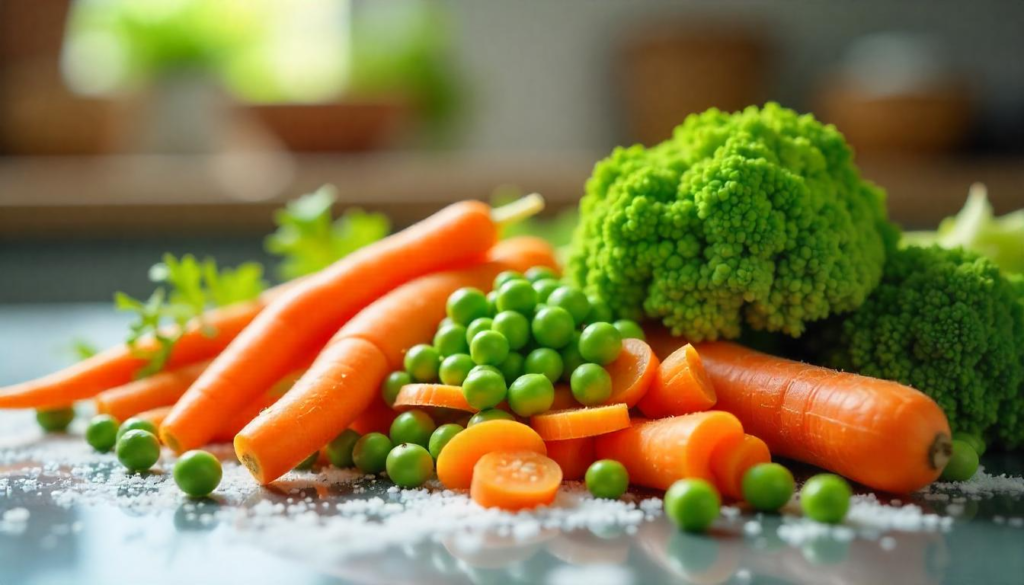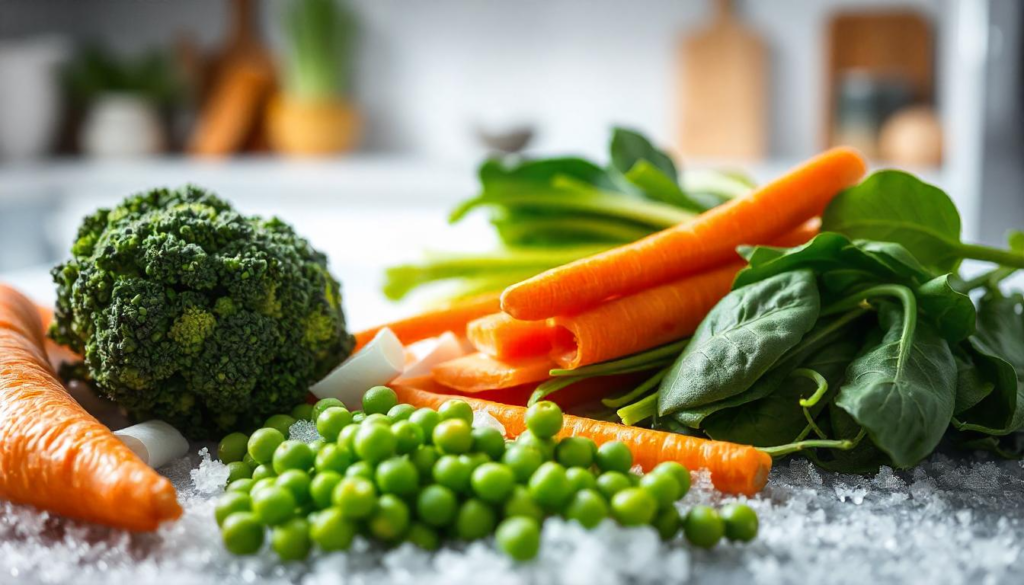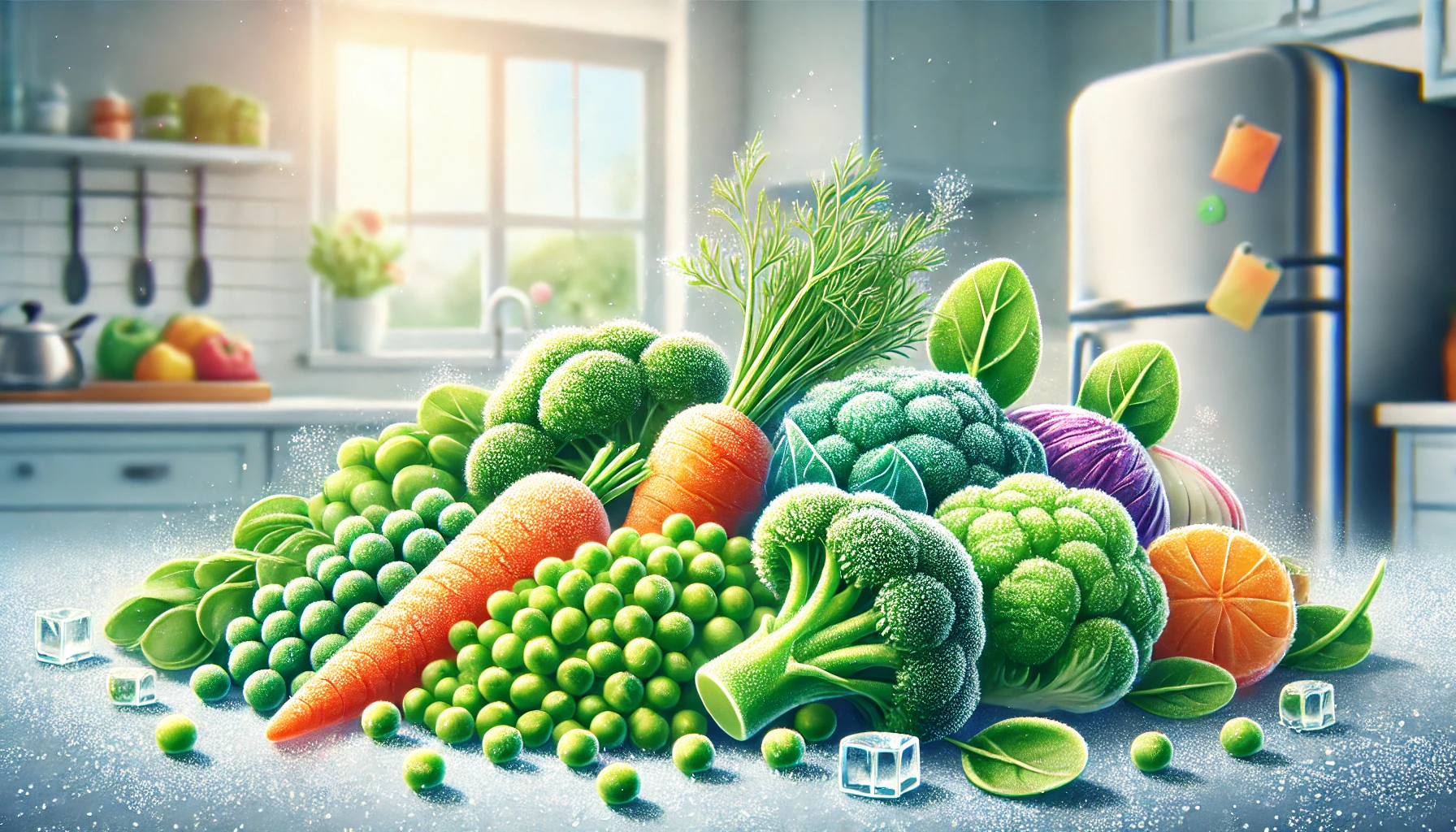Learn why amazing frozen vegetables are a healthy, convenient meal choice. Discover smart eating today!

Introduction:
Why Frozen Veggies Deserve a Place in Your Diet
While amazing fresh vegetables are often regarded as the epitome of nutrition, frozen vegetables are often overlooked in the realm of healthy eating. Many people assume that fresh is always better, but that’s not necessarily the case. Frozen vegetables can offer just as much, if not more, nutritional value than their fresh counterparts, making them a convenient and healthy option.
In this article, we’ll explore six amazing reasons why frozen vegetables are a great choice for health-conscious individuals. From preserving nutrients to reducing food waste, frozen veggies provide numerous benefits that you may not have considered before.

1. Frozen Veggies Retain High Nutritional Value
Fresh vs. Frozen: Which Is More Nutritious?
One of the biggest myths about frozen vegetables is that they lose nutrients during the freezing process. However, research has shown that frozen vegetables can actually retain more nutrients than fresh ones, especially if they are flash-frozen soon after harvest.
Key Nutritional Comparisons:
- Vitamin C: Fresh vegetables lose vitamin C over time during transport and storage. Frozen veggies, on the other hand, are frozen at peak ripeness, locking in their vitamin C content.
- Antioxidants: Frozen vegetables like spinach and broccoli retain high levels of antioxidants, which can degrade in fresh vegetables if they are not consumed quickly.
- Minerals: Nutrients like potassium, iron, and calcium remain stable in frozen veggies, making them just as good as fresh in terms of mineral content.
Why This Matters for Your Health
Eating vegetables rich in vitamins, minerals, and antioxidants helps to:
- Boost immunity
- Support heart health
- Improve skin and hair quality
- Reduce the risk of chronic diseases
Frozen veggies ensure that you’re getting the full spectrum of these health benefits without nutrient loss.
2. Frozen Vegetables Are Free from Preservatives
Many packaged foods contain preservatives and additives, but frozen vegetables are different. Most frozen vegetables are simply picked, washed, and flash-frozen without the need for artificial preservatives.
How Freezing Works as a Natural Preservative
- Flash freezing locks in freshness without altering the nutrient profile.
- No need for chemicals to maintain shelf life.
- Freezing prevents bacterial growth naturally, unlike some canned vegetables that require preservatives.
Health Benefits of Avoiding Preservatives
- Reduces exposure to harmful chemicals.
- Helps prevent allergic reactions and sensitivities.
- Maintains the natural taste and texture of vegetables.
3. Frozen Veggies Help Reduce Food Waste
Did You Know?
The average household wastes nearly 30-40% of the fresh produce they buy due to spoilage before consumption. Frozen vegetables significantly cut down on food waste since they last much longer and can be used as needed.
How Do Frozen Vegetables Help?
- Long Shelf Life: Unlike fresh produce, which spoils quickly, frozen vegetables can be stored for months.
- Portion Control: You can use only the amount you need and keep the rest frozen.
- Less Spoilage: No more throwing away wilted spinach or moldy broccoli.
Reducing food waste also means saving money, making frozen vegetables a budget-friendly option for families.
4. Convenience Without Compromising Health
Time-Saving Benefits
In today’s fast-paced world, not everyone has time to wash, peel, chop, and prepare fresh vegetables daily. Frozen vegetables come pre-cleaned and pre-cut, saving valuable time in the kitchen.
Easy to Use
- Quick to cook: Can be steamed, stir-fried, microwaved, or added to soups and stews.
- Year-round availability: Unlike seasonal fresh produce, frozen vegetables are available anytime.
- Great for meal prep: Easily incorporated into meal plans without worrying about spoilage.
With frozen veggies, you can enjoy healthy, home-cooked meals without the hassle of extensive prep work.
5. More Affordable Than Fresh Produce
Why Do Frozen Vegetables Cost Less?
- They are harvested at peak ripeness and frozen in bulk, reducing waste and production costs.
- No need for expensive transportation methods that keep fresh produce cool.
- Less spoilage means fewer losses for retailers, allowing them to sell frozen vegetables at a lower price.
Cost Comparison: Fresh vs. Frozen
| Vegetable | Fresh (Per Pound) | Frozen (Per Pound) |
|---|---|---|
| Broccoli | $2.50 | $1.50 |
| Spinach | $3.00 | $2.00 |
| Peas | $2.00 | $1.20 |
| Carrots | $1.50 | $1.00 |
Budget-Friendly and Nutritious
For families and individuals on a budget, frozen vegetables provide a cost-effective way to maintain a healthy diet without sacrificing quality.
6. Frozen Vegetables Are Just as Tasty as Fresh
Flavor Preservation
Thanks to advanced freezing techniques, frozen vegetables retain their natural taste and texture. Many people find that frozen vegetables taste just as good as, if not better than, fresh ones when cooked properly.
Cooking Tips for Maximum Flavor
- Steam Instead of Boil: Preserves nutrients and keeps vegetables crisp.
- Roast with Olive Oil & Spices: Enhances natural sweetness and texture.
- Sauté with Garlic & Butter: Adds depth of flavor without overpowering the natural taste.
With the right cooking methods, you won’t be able to tell the difference between fresh and frozen vegetables in your meals.
Conclusion: Make the Switch to Frozen Veggies Today!
Frozen vegetables provide an unparalleled blend of nutrition, convenience, affordability, and sustainability. Whether you’re looking to save time, reduce waste, or ensure year-round availability of your favorite veggies, frozen options are a fantastic choice.
Quick Recap of Benefits:
✅ Retain high nutritional value. ✅ Free from preservatives. Reduce food waste. ✅ Time-saving and convenient. ✅ More affordable than fresh produce. ✅ Tastes just as good as fresh
Next time you’re at the grocery store, don’t overlook the frozen vegetable aisle.
Your body, wallet, and the environment will thank you!


